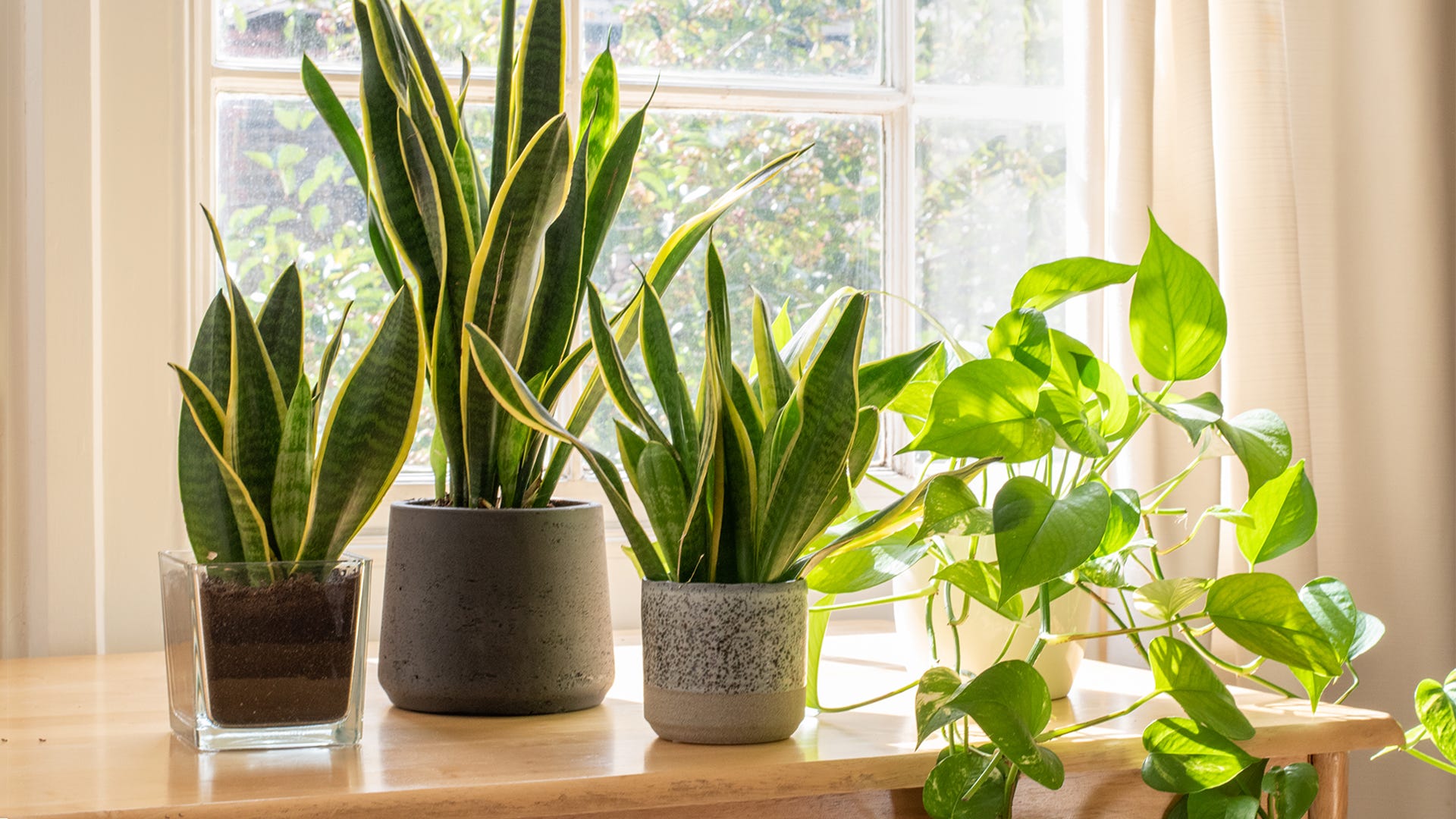
Most of us know organically grown plants are free of pesticides and other synthetic chemicals, which makes them healthier and safer than conventionally grown plants. What you may not know, is that there are a number of different plants that provide us with additional health and therapeutic benefits.
Many plants have the ability to purify the air around us, making our environment more healthy overall. Some therapeutic plants even have the ability to help stimulate our minds at work, or calm us down when we get home. Let’s take a closer look at a few of the plants that can be an excellent source of “green therapy.”
Air-Purifying Plants
Throughout the day we breathe in many toxins that are being released into the air by common home and office products. Formaldehyde is found in carpets, upholstery, glues, paint and more. Trichloroethylene is most commonly found in paint remover, rug cleaning solution, and adhesives. Benzene is found things like in plastic, synthetic fibers, lubricants, rubber, and pesticides.
Luckily, there are many different therapeutic plants that can purify the air of these chemicals. Some of the more popular air-cleaning plant species include:
- Aloe – Aloe is a popular houseplant because of its many uses. Not only is it an interesting-looking plant, the gel it produces is a common home remedy for burns, stings, cuts, and itchy bug bites. However, the plant itself is also beneficial because it’s known to clean formaldehyde and benzene from the air.
- English ivy – This extremely versatile houseplant can serve as either a hanging or floor plant, and it doesn’t require much light. From a health perspective, English ivy has been found to clean the air of mold and animal feces allergens. Additionally, according to NASA, English ivy is the most effective plant at absorbing formaldehyde.
- Rubber tree – Rubber tree plants do not require exposure to bright light or warm temperatures to thrive, making them a popular choice for darker apartments or cubicles. They are also known for their extraordinary air purification capabilities. Rubber tree plants have been known to reduce formaldehyde, trichloroethylene and benzene.
- Peace lily – The Peace lily is one of the few air-purifying plants that flowers. Like the rubber tree plant, it doesn’t require bright light, making it a popular office plant. As an air purifier, it is known for its ability to remove toxins like benzene and acetone.
- Snake plant – The snake plant can make due with minimal amounts of light or water. This plant is the perfect houseplant to keep in your bedroom, because unlike most plants, it converts CO2 into oxygen at night. The snake plant also has been said to filter out formaldehyde, trichloroethylene, xylene, toluene, and benzene.
Plants as Stimulators
Studies have shown that smelling peppermint enhances memory and increases alertness. The scent of Lemon balm has been shown to improve moods and raise levels of norepinephrine, which is a chemical in the brain that’s linked to mood and behavior. Gardenia reportedly improves your emotional outlook. Place any of these therapeutic
plants in your home or office for a little productivity boost.
Plants as Stress-Busters
The presence of just about any type of plant can alleviate stress, particularly when placed in an office environment. A study conducted by the Department of Horticulture and Landscape at Washington State University found that workers who performed stressful computer tasks experienced a reduction in systolic blood pressure when plants were added to the work area. As the level of stress decreased, the workers also reported feeling more alert and focused, resulting in faster reaction times and increased productivity.
Keys to Growing Therapeutic Plants Indoors
To successfully grow organic plants indoors, you need to choose those capable of thriving in an indoor environment (such as the ones listed above). Special attention must also be paid to the unique lighting and watering requirements of your plant choice, keeping in mind they may not be exposed to natural growing aids such as sunlight or rainwater.
Organically grown indoor plants are also susceptible to damage from harmful insects such as aphids, whiteflies, mealybugs and mites, as well as a variety of plant diseases. Safer® Brand offers an assortment of gardening products that are compliant for use in organic production and can help you keep these potential plant-killers at bay.



